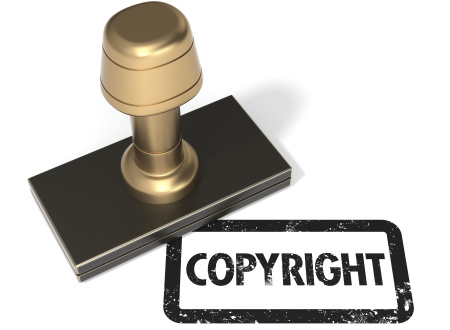Artists, musicians, photographers and writers are passionate about their work. Protecting their original works of authorship is a priority. The firm can register works involving music recordings, drawings, books, magazines, poetry, movies, computer software, theater, dance, and photographs. Drafting a proper employment contract can be essential for ensuring that an employer obtains rights to original works produced by its employees.
What is a copyright? Copyrights protect your “original works of authorship.” Such works must be fixed to tangible mediums of expression, published or unpublished. Original works include such things as music, drawings, written text (e.g. books, poems, etc.), movies, computer software, and photographs and derivatives of such works. You cannot, however, get a copyright for things like ideas, concepts, principles, systems, procedures, processes, or discoveries.
When does copyright protection start? Copyright protection automatically starts the instant you fix your creative work to some tangible medium. An idea is not enough. You must write it down, record it, draw it, capture it on film, or otherwise make it fixed to some medium capable of being perceived, copied or otherwise communicated.
What do copyrights do for me? Copyright protection gives you control over your own works. Other people should obtain your permission before they can use it, perform it, copy it, display it, or sell it. Section 106 of the Copyright Act of 1976 states that “the owner of copyright under this title has the exclusive rights to do and to authorize any of the following:
- to reproduce the copyrighted work in copies or phonorecords;
- to prepare derivative works based upon the copyrighted work;
- to distribute copies or phonorecords of the copyrighted work to the public by sale or other transfer of ownership, or by rental, lease, or lending;
- in the case of literary, musical, dramatic, and choreographic works, pantomimes, and motion pictures and other audiovisual works, to perform the copyrighted work publicly;
- in the case of literary, musical, dramatic, and choreographic works, pantomimes, and pictorial, graphic, or sculptural works, including the individual images of a motion picture or other audiovisual work, to display the copyrighted work publicly; and
- in the case of sound recordings, to perform the copyrighted work publicly by means of a digital audio transmission.”
Note: phonorecords includes CD, DVD, cassette tapes, etc.
Why register my copyright? Registering your copyright with the United States Copyright Office (a department of the Library of Congress) may make good business sense. It provides you with significant advantages, such as:
- Constructive notice to the world that you own the copyright;
- The ability to file suit against infringers in federal court;
- Statutory damages and attorney’s fees if you win in court (provided that you registered the copyright prior to the infringement or within 3 months of its first publication);
- A presumption that the copyright is valid (provided that it was registered before or within 5 years of its first publication); and
- The ability to prevent imports that infringe on your copyright by filing your registration with the U.S. Customs and Border Protection (CBP) Service.
Who can claim copyrights? Authors of the original work. Merely owning something does not necessarily mean you have copyrights to it. You must be the author of the original work or the owner of the copyright must have conveyed it to you. Also, employees may not necessarily be considered “authors” if they are considered “work made for hire” as specified in the 1976 Copyright Act.
What does the symbol © mean? The symbol puts the world on notice that you are claiming copyright protection. Providing notice of your claim to copyright protection changed under the Berne Convention of 1989. However, using it may still be a good idea. Proper notice should include the following: (1) using the © symbol or the word “Copyright” or its abbreviation “Copr.,” (2) the first year the work was published, and (3) the name of the owner. Example: © 2014 Mike Jones.
How long does it last? A copyright created on or after January 1, 1978 automatically lasts for the life of the author plus 70 years after his or her death. If two people jointly authored a work, the copyright endures for the life of the last living author plus 70 years. If it was authored by a work for hire, then it lasts 95 years from its first publication or 120 years from its creation, whichever is shorter.
How much does it cost to file a copyright registration application? The cost to pay a practitioner to assist you may vary depending on a number of factors. The United States Copyright Office charges a fee to register your copyright which fee depends on several factors, including whether you apply online or by mail. Click here http://copyright.gov/circs/circ04.pdf to see what the fees are.
How do I transfer my copyrights? Copyrights are considered personal property. A transfer of exclusive rights in a copyright must be in writing and signed by the owner (or his or her authorized agent). It also may be transferred by operation of law or by will.
What is the difference between a patent, trademark and copyright? A patent is the right to exclude others from making, using or selling what you invented. A trademark protects the association of a particular “mark” (i.e. word, phrase, slogan, name, symbol, color, design, logo, thing, etc.) with your business. A copyright protects your original works of authorship (i.e. music, drawings, written text, photograms, etc.).
“Logic will get you from A to B. Imagination will take you everywhere.”
― Albert Einstein
